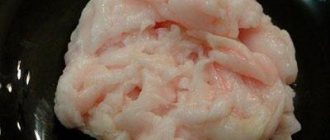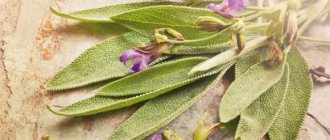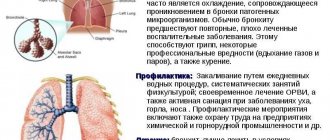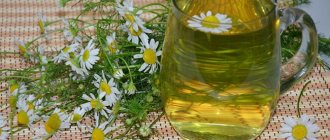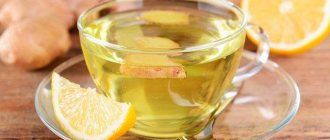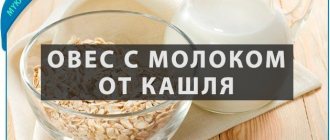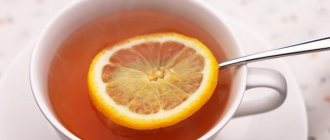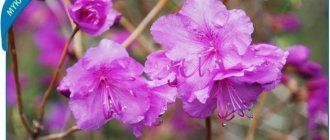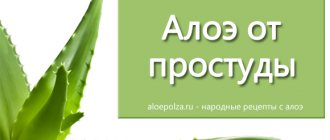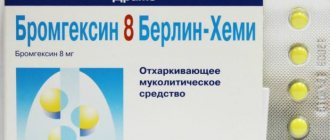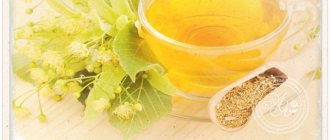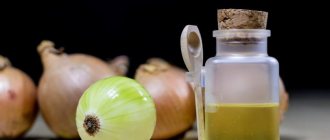Eucalyptus is an exotic plant for most people. The plant came to Russia in the mid-eighties of the last century into the hands of the famous Soviet botanist A. N. Krasnov. A lot of time passed before eucalyptus was recognized as a medical remedy in the fight against many diseases. In our country, this plant grows only in warm regions, near the Black Sea coast. What valuable properties does eucalyptus have?
They noticed eucalyptus when they were able to identify its unique action of absorbing water with the help of roots covering the perimeter next to the tree and releasing disinfectants into the atmosphere. Eucalyptus does not shed its leaves in the fall, and therefore delights with its bright green foliage all year round. The plant releases a large amount of phytoncides into the air, enriching it with oxygen and repelling pests. It is usually grown in malarial areas. Chemical composition:
- monoterpene;
- camphor, citral, menthol;
- 3 - methylbutanal;
- organic substances of the aromatic series, complex in composition, soluble in water.
Medical workers use only 3 types of eucalyptus:
- ashen;
- ball;
- twig-like.
The silvery species is included in many medications to combat coughs and sore throats:
- Pectusin;
- Chlorophyllipt;
- Inhalipt;
- alcohol tincture.
Eucalyptus contains esters that are excellent for treating various diseases:
- angina;
- herpes;
- rhinitis;
- ORZ.
This plant has proven itself well as a drug for the treatment of acute respiratory infections and acute respiratory viral infections, coughs due to its antimicrobial effect, as well as one of the most common mucolytic agents. Silver eucalyptus is mostly used for brooms (in the bathhouse). The branches of this species are strong and slightly bendable, so it is convenient to use a broom made from this eucalyptus to create steam. Silver eucalyptus helps cope with a wide variety of diseases.
Beneficial features
Due to its unique composition, the plant is ahead of many plants in medicine. There are practically no analogues, and the evergreen plant can provide medicine all year round.
Eucalyptus medicinal properties in the fight against cough:
Cough eucalyptus contains a large amount of ether; the content of biologically active substances that kill or suppress the growth and development of bacteria is much higher than that of other plants. The healing properties of eucalyptus make it possible to actively combat respiratory diseases. The plant has long been famous as a mucolytic and analgesic for sore throats. They have a wide range of antimicrobial properties. Treats even the most persistent diseases, such as staphylococcus.
Eucalyptus for cough and inhalation with it
Eucalyptus is a somewhat exotic plant for us. It came to us in the 80s thanks to the famous Soviet botanist and founder of the Batumi Botanical Garden A.N. Krasnov.
It took half a century for eucalyptus to become part of the culture and medicine of our society.
In our country, this plant grows mainly only in the warm climate of the Black Sea coast and in the southern climatic zones.
Interest in this plant arose due to its ability to absorb water through its roots, which widely cover the area next to the tree, and release disinfectants into the atmosphere through its leaves.
Eucalyptus does not change its leaves for the winter, and remains green all year round, releasing a large amount of volatile phytoncides and other useful substances that enrich the air, repel many insects and perform a large number of other useful functions.
It is usually cultivated in malarial areas.
Only three species of this plant are used in medicine. These are ash, ball and twig eucalyptus.
The essential oils contained in the leaves are excellent for treating various diseases of sore throat, leukemia, rhinitis, herpes and, of course, respiratory diseases.
This is already a well-proven remedy against colds and coughs, thanks to its pronounced antiviral and bactericidal effects, and also as one of the most effective expectorants.
How to store eucalyptus
In order for the leaves of the plant to bring maximum benefit, you need to know how to store them correctly. After drying, the leaves are placed in a closed glass container with a thick bottom and walls, which helps limit the penetration of ultraviolet rays.
The shelf life of raw materials is up to 3 years. During this time, it does not lose its appearance, benefits, or taste. Fresh leaves are stored for no longer than 7 days.
Recommended video:
In any case, self-medication if you have a cough is prohibited. Only a doctor can make the correct diagnosis and determine the method of therapy.
Select it and press Ctrl+Enter to let us know.
Sinus rinsing
The use of nasal lavage is the most common method of treating chronic sinusitis with folk remedies. Rinsing can be carried out using a special kettle, a syringe without a needle or a syringe.
If you don’t have anything at hand, you can simply suck in the medicinal solution from your palm through one nostril, while pinching the other. To prevent the liquid from getting into the larynx, you should make the sound “and-and-and.”
Eucalyptus tincture
Eucalyptus tincture is often used to rinse the sinuses. Eucalyptus leaves contain an oily liquid that is a natural antibiotic.
That is why eucalyptus tincture has an effective healing effect on the sinuses. The following recipe is used to rinse the nose.
First, prepare a saline solution: 1 glass of warm water and 1 tsp. salt. Eucalyptus tincture (7-10 drops) is added to this solution. The use of such a solution allows not only to wash away mucus from the sinuses, but also to relieve swelling and inflammation.
Source: https://ClubZdravie.ru/kniga-receptov/evkalipt-ot-gajmorita-2.html
Recipes
There are many known ways to use eucalyptus leaves for medicinal purposes:
- inhalation;
- tea;
- infusion;
- rinsing.
Inhalations
This procedure is carried out to get rid of phlegm in the lungs and bronchi, clears the nasal passages of mucus accumulation, which makes recovery faster. Indications for treatment with eucalyptus:
- tracheitis;
- bronchitis;
- laryngitis;
- tonsillitis.
Cooking method
- Place three tablespoons of crushed eucalyptus leaves in a small saucepan half filled with water. It is necessary to boil for ten to fifteen minutes.
- You need to let the solution cool slightly for 15-20 minutes, after which you can begin the inhalation itself.
- You can make the procedure much easier by applying eucalyptus essential oil to boiling water.
- Then inhale the steam for three to five minutes. The inhalation process can also be carried out on young children over two years of age.
Tea
Tea is great for preventing phlegm from forming and spreading in the lungs. Method of preparation: you need to take six tablespoons of leaves of the crushed plant, pour half a liter of boiling water over everything. Let the tea steep for twenty to thirty minutes, then pour the solution into a non-metallic mug. Drink in small portions, three times a day, while brewing new tea each time.
Collection
To prepare the mixture, take eucalyptus leaves, thyme, coltsfoot, pour boiling water over it and take it internally like tea. Helps cure bronchitis and cough.
Infusion
Used for coughs associated with the lower respiratory tract. It is very simple to prepare: you need to take one tablespoon of crushed leaves of the plant per cup of hot water. Wrap the prepared solution in a towel to keep warm for several hours. Then strain the leaves and pour into a glass bowl. Use one tablespoon three times a day. An alternative is a pharmacy infusion of the plant. For 1/4 cup you will need from twenty-five to thirty drops several times a day.
Rinsing
Helps with cough in the upper respiratory tract. An alternative is a pharmacy infusion of the plant for ease of preparing a rinse solution. You need to pour two hundred milliliters of water and fifteen drops of eucalyptus infusion into a glass. Preparation of the solution at home: take a tablespoon of crushed leaves of a medicinal plant and pour it with ethyl alcohol in a ratio of 1/5, leave for fourteen days.
Lozenges
Used for gingivitis, laryngitis, tracheitis, tonsillitis, stomatitis. They are an antiseptic in the treatment of throat diseases, a mucolytic drug. Compound:
- levorotatory isomer of menthol;
- Eucalyptus oil.
The drug is allowed to be used by pregnant women. Dissolve three to four tablets per day for five days.
Ointment
Ointment with eucalyptus esters is used in the treatment of bronchitis, tonsillitis, otitis media, laryngitis. The ointment is rubbed into the chest area.
Inhalations with eucalyptus nebulizer: rules of conduct
Inhalation with eucalyptus nebulizer is quite effective, since the device implements the principle of ultra-fine dispersed spraying of the drug, due to which its healing components penetrate the respiratory tract very quickly. You cannot use products with an oil base; only liquid solutions are transformed into an easily digestible aerosol form.
Preparing to do it at home
By following simple recommendations, you can significantly increase the effectiveness of procedures at home:
- inhalation should be done an hour and a half after eating, and if you do the procedure on an empty stomach, nausea may set in;
- the day before, do not take medications to speed up the discharge of sputum;
- to make it easier to breathe, you need to free the neck area from a scarf, headscarf and tight collar;
- if you need to ensure an effect only on the nasopharyngeal mucosa, choose nasal inhalation (breathing alternately through the nasal passages through special nozzles);
- you need to try to breathe evenly;
- to reduce coughing attacks and improve the condition of the mucous membrane during tonsillitis, laryngitis, pharyngitis, you need to actively inhale the vapor through your mouth, holding your breath for 2 seconds, and then exhaling through your nose;
- You must first disinfect all compartments of the device according to the instructions.
It is allowed to perform inhalations three times a day, no more. If you are worried about a persistent cough, it is better to avoid the inhalation procedure before going to bed, otherwise you may provoke increased sputum production at night.
Inhalation solution options
Solutions for inhalation are prepared in different versions, using both eucalyptus raw materials and its combination with other components (eucalyptus alcohol tincture and saline solution), herbal decoctions (lavender, sage, chamomile, eucalyptus) with the addition of soda, honey are used as medicinal compositions , as well as a solution of sea salt or mineral water.
With butter
If an oil base is used for treatment, then instead of a nebulizer, use a small saucepan or kettle. You need to boil water, add 12-15 drops of eucalyptus oil to it and breathe in the healing steam. It is easier to do this through the spout of the kettle, which is suitable as a breathing tube. You need to lean lower over the saucepan and cover your head with a towel so that the steam does not escape.
It is advisable to perform inhalations with eucalyptus oil not only for the treatment of sinusitis, rhinitis, tonsillitis, but also for preventive purposes in case of unfavorable epidemiological conditions.
With tincture
You can purchase a ready-made tincture at a pharmacy or prepare it yourself. To do this, take a package of leaves (50 g), add 200 ml of alcohol (70%). The mixture is infused for at least 15 days, filtered so that there is no sediment. Store the tincture in a glass container and use as needed.
A saline solution (200 ml) with the addition of 3 ml of eucalyptus tincture is poured into the nebulizer. This is enough to complete the procedure. The duration of inhalation is 7-10 minutes for a child (children under 5 years old - 5 minutes), and 15 minutes for an adult. Upon completion of the procedure, you should not drink cold drinks, especially those with gas, alcohol, or eat spicy foods.
How to brew eucalyptus leaves
How to brew eucalyptus leaves:
- For the decoction you need 0.5 liters of boiling water and 3 tbsp. l. crushed leaves.
- The mixture is brought to a boil and simmered over low heat for about 10 minutes, kept under a closed lid.
- After 5 minutes you can perform inhalation.
- The broth can be poured into a convenient container or, covered with a towel, simply breathe in the vapors directly from the pan.
Inhaling a decoction of eucalyptus leaves relieves swelling of the nasal passages and larynx, mucus is more easily separated and removed, heating with eucalyptus vapor helps normalize breathing and reduce coughing attacks.
The decoction is recommended for inhalation for bronchitis and respiratory diseases. After 2-3 days of inhalation, the patient feels improvement.
With soda and eucalyptus
You can enhance the effect of the healing decoction by adding regular baking soda to its composition. The recipe is as follows: for 1.5 liters of boiling water, 5 drops of eucalyptus oil or 1 tbsp. l. crushed leaves. Add 2 tsp to the resulting decoction. soda and start the inhalation procedure.
How many drops of eucalyptus are needed, proportions
The number of drops of eucalyptus depends on the total volume of liquid; the proportions must be observed: if you take 200 ml of saline solution or hot water, then the finished composition should contain 12-15 drops of alcohol tincture. The doctor recommends the required number of inhalations and the frequency of their implementation based on the severity of the patient’s condition. It is not advisable to use eucalyptus treatments for longer than 7 days.
Eucalyptus for inhalation for children: features of the procedure, dosage
Children can use eucalyptus for inhalation from the age of 2. If the child is not afraid of the nebulizer, the procedure is not difficult to perform. It is recommended to follow these rules:
- inhalation time – no more than 5 minutes;
- number of procedures per day – no more than 2;
- First you need to show the child how to breathe correctly;
- The baby should not be left alone during inhalation; the presence of an adult is required.
The proportions for the solution poured into the nebulizer must be agreed with the pediatrician; if this is not possible, the adult dosage must be reduced by 2 times.
If you don’t have a nebulizer, for older children you can use the spout of a kettle at home as a breathing tube with a medicinal solution. It will be more difficult to do the procedure from an open saucepan, since the child’s skin is very sensitive to hot steam, and in order to avoid getting burned, parents need to perform the manipulation very carefully.
Cold inhalation
If a child is capricious, afraid of a nebulizer, or does not want to breathe fumes from a saucepan or kettle, you can use the option of cold inhalation. To do this, you can apply 2-3 drops of eucalyptus oil on a paper napkin and gently apply it to the child’s nose for 3-5 minutes, giving him the opportunity to breathe in the eucalyptus phytoncides. Another way is to drop the oil into an aroma lamp or onto the surface of a warm radiator in the child’s room (at the rate of 3-5 drops per 15 m2).
Is it possible during pregnancy?
If the expectant mother is not allergic to eucalyptus, performing inhalations is quite justified when the patient is bothered by a dry cough or has inflammation of the throat mucosa. The appropriateness of using procedures, their duration, frequency, proportions of eucalyptus tincture (for a nebulizer) or other gentle methods of therapy should be recommended by the attending physician.
Instructions for use
For different pathological conditions, it is recommended to use different options for inhalation with eucalyptus, but the instructions will be standard for a nebulizer: pour in the required amount of solution, breathe for 5 minutes for children or up to 10 adults, wash the device with soapy water.
When coughing
When coughing, it is best to inhale using a hot decoction of eucalyptus leaves. For the decoction you need to take 2 tbsp. l. dry leaves and 250 ml of boiling water, the mixture should be brought to a boil and boiled for 3-5 minutes. The broth is infused for 10-15 minutes, tightly wrapped; after straining, you can do steam inhalation. For the inhalation composition, it is enough to take 2 tbsp. l. decoction in 200 ml of hot water.
For bronchitis
For bronchitis, it is recommended to use oil-based inhalations. They help thin mucus and facilitate its removal from the bronchi. Inhalations are performed 2-3 times a day. After several procedures, the bronchial tissues are well cleaned, and the sore throat goes away.
To make breathing easier, you can use inhalation with a decoction of several medicinal herbs in combination with eucalyptus leaves (chamomile, sage, thyme). The effect of the decoction can be enhanced by adding 1 tsp. soda
With a runny nose
When you have a runny nose, it is useful to do a steam procedure twice a day, using eucalyptus oil or combining it with lavender or fir oil. You must first make sure that the patient is not allergic to these essential oils. If we are talking about a child, you should consult a pediatrician. Add 3-5 drops of oil to 0.5 hot water and inhale the healing vapors. After just two or three inhalations, congestion in the nasal passages decreases and full breathing is restored.
For sinusitis
Many ENT doctors advise against performing hot steam inhalations for sinusitis, so as not to provoke complications of the disease. In this case, a cold procedure is preferable; you need to breathe in the essential vapors of eucalyptus oil for about 5 minutes twice a day, which is applied 2-3 drops on a paper napkin. Nasal congestion will become less, and nasal discharge will come out easier. The number of procedures must be agreed with the doctor.
Watch this video about what cold and hot inhalations are and what essential oils to use for colds:
Contraindications
Like any medicine, eucalyptus has contraindications. They are usually similar to those of other medications:
- not recommended for people suffering from liver diseases ;
- should not be used by persons with diseases of the genitourinary system ;
- gastrointestinal diseases;
- in case of heart disease, it is recommended to consult with your doctor before use;
- for asthma and whooping cough, the use of this drug is also contraindicated;
- pregnant women and infants to take eucalyptus ;
- allergic reactions.
Before using eucalyptus, like any other medicine, you need to consult a specialist to avoid negative consequences. Some pharmaceutical types are strictly prohibited for use by persons under twelve years of age .
Harvesting eucalyptus leaves
Blanks for pharmaceutical preparations are combined with decorative trimming. Under no circumstances should you break the branches of the plant; you can carefully break off the young leaves from late autumn until the end of winter.
The leaves are dried, as a rule, in well-ventilated areas or specialized dryers at a temperature of plus forty degrees. It is important to maintain the thermal temperature and not exceed it, as the beneficial properties may disappear. The finished product is stored in glass containers in a dark place for no more than two years.
